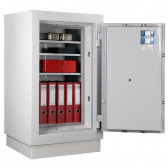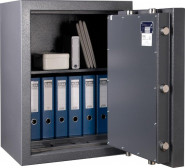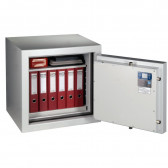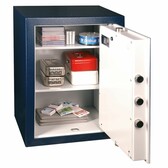The Monetary Policy Council has reduced bank deposit interest rates almost to zero. This way the NBP base rate dropped to 0.10 per cent and banks decided to introduce fees for keeping money on savings accounts. What does this mean in practice?
Reduction of interest rates – the effects
This means that the minimum interest on deposits is not enough to cover the savings account fee rates and in practice customers will be forced to pay extra, putting their savings at risk. Those with small deposits in banks will be most affected. Reduced interest rates, to be effective from September in EnveloBank (even down to 0.01%), or already 0.01% in Santander and even 0% on accounts in Alior Bank, will not allow savings to make money. If we add to this the returning account maintenance fees, we can in fact talk about negative interest on deposits, although of course formally we do not have offers with negative interest for individual clients in our country.
Until recently, only the biggest customers, mainly corporate ones, who kept sums counted in millions of zlotys on their accounts, could count on possible deposit fees. Unfortunately, the crisis caused by the coronavirus pandemic meant that such inconveniences also affected individual customers.
Charges for savings accounts
What fees do customers of each bank have to reckon with?
Envelo Bank
In this bank the fee for servicing a savings account will be PLN 2.99 per month for people who do not have a current account and PLN 1.99 for clients who have an ROR in EnveloBank.
Citi Handlowy
In Citi Handlowy, fees are to apply to foreign currency accounts, and their amount will depend on the account balance. It can be as much as PLN 180 per month. In other words – the more savings on the account, the higher the fee. Moreover, the bank anticipates a fee of 15 PLN for Konto SuperOszczędnościowe and 10 PLN for Konto Oszczędnościowe, where in the former case City Handlowy waives the fee if the ROR account is credited with remuneration of at least 3,000 PLN per month, and in the latter case if the client has a personal account with the bank.
Toyota Bank
At Toyota Bank the fee is also conditional and will amount to as much as PLN 30 per month if the client withdraws funds from the indexed Konto Oszczędnościowe in a given month.
PKO BP
PKO BP, in turn, expects to pay as little as PLN 1 per month for operating a savings account, but with low amounts and an interest rate of 0.2% for amounts up to PLN 50,000 this will also mean a loss.
Of course, account maintenance fees and minimum interest rates are not everything. Customers using deposit products must also take inflation into account. Even before the interest rate cuts, it was difficult to generate a real profit. Therefore, due to the decrease in the purchasing power of money, you have to reckon with the fact that you will be able to buy less with the deposited amount in the future.
Real savings

Although the aforementioned amounts may seem small, it is worth noting that with an interest rate of 0.01% and a deposit of PLN 10,000, as in the case of Santander, and taxing the savings with 19% Belka's tax, after a year you will earn... 0,81 PLN! At the same time paying as much as PLN 36 per year. And just a few years ago you could earn on the same deposit even a few hundred zlotys.
Where to deposit money safely?
An alternative to savings accounts, for which we will have to pay and deposit money in the bank, is to keep cash at home. However, in order to store it safely, it is worth investing in a home safe adapted to individual needs. This will ensure that you always have cash to hand and, at the same time, have somewhere to safely store important documents, valuables, coins and other valuable items. Certified safes, such as the products in the Hartmann Tresore range, not only protect your valuables against unauthorised access, but also protect them against damage, for example in a fire.
Only tested safes with certification will allow even large monetary values to be stored securely, while meeting the requirements of insurance companies. It is possible to make a safe adapted to the storage of jewellery or watches, by installing drawers or watch winders – to accommodate all valuable deposits. You can either buy a free-standing safe or install it in a piece of furniture so that it is hidden from public view. For those who value discretion, wall safes or floor safes are recommended. Either type of safe will make it possible to secure our possessions.
We address this issue in more detail in this text: In cash or in the bank – how to store money?
Summary
There is no doubt that the use of bank deposit products is not profitable at present. The uncertain situation also means that the aforementioned banks will certainly soon be followed by other financial institutions gradually introducing new charges in order to cope with minimum interest rates. Therefore, other ways to invest your savings are worth considering which are not dependent on interest rates and the decisions of banking institutions.
Still not sure if a safe is the right solution for you? Visit Hartmann Tresore and talk to our advisors.





